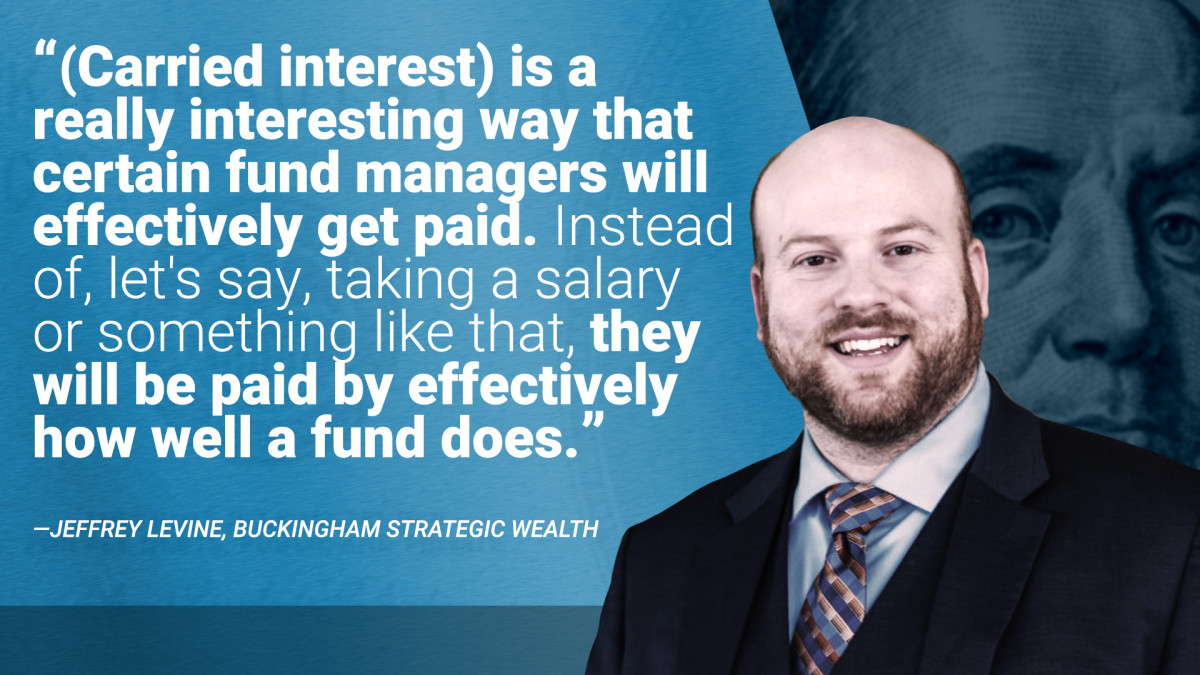What is carried interest? Retirement Daily’s Robert Powell caught up with Jeffrey Levine, CPA and tax pro from Buckingham Strategic Wealth Partners, to answer that question and explain the benefits.
TurboTax Live experts look out for you. Expert help your way: get help as you go, or hand your taxes off. You can talk live to tax experts online for unlimited answers and advice OR, have a dedicated tax expert do your taxes for you, so you can be confident in your tax return. Enjoy up to an additional $20 off when you get started with TurboTax Live.
Quotes| What Is Carried Interest? Jeffrey Levine, Chief Planning Officer, Buckingham Strategic Wealth Jeffrey Levine, Chief Planning Officer, Buckingham Strategic WealthRecommended Read: A Guide to the Capital Gains Tax Rate: Short-term vs. Long-term Capital Gains Taxes
Video Transcript| Jeffrey Levine, CPA and Tax Expert, Buckingham Strategic WealthRobert Powell: What is carried interest? Well, here to talk with us about that is Jeffrey Levine from Buckingham Strategic Wealth. Jeffrey, welcome.
Jeffrey Levine: Good to be with you, Bob.
Robert Powell: So what is carried interest?
Jeffrey Levine: Yeah, this is a really interesting way that certain fund managers will effectively get paid. Instead of, let’s say, taking a salary or something like that, they will be paid by effectively how well a fund does. And if you hold on to your interest in this, you carry that interest long enough, the carried interest provision or “loophole” in the tax code allows those dollars, even though they are for work, they are for compensation for the work that individual has performed. They allow those dollars to be taxed at long-term capital gains rates.
Now, ordinarily, you and I, when we go to work, and we get paid for doing the work that we do, we have to pay ordinary income tax rates, which are as high as 37% on the federal side (plus payroll taxes). But because carried interest qualifies for long-term capital gains rates, that is taxed at a maximum of 20%, giving those fund managers a really nice tax break.
Editor’s Note: The content was reviewed for tax accuracy by a TurboTax CPA expert.
Zach Faulds contributed to the writing of this article and produced the video and/or the graphics associated with it.
